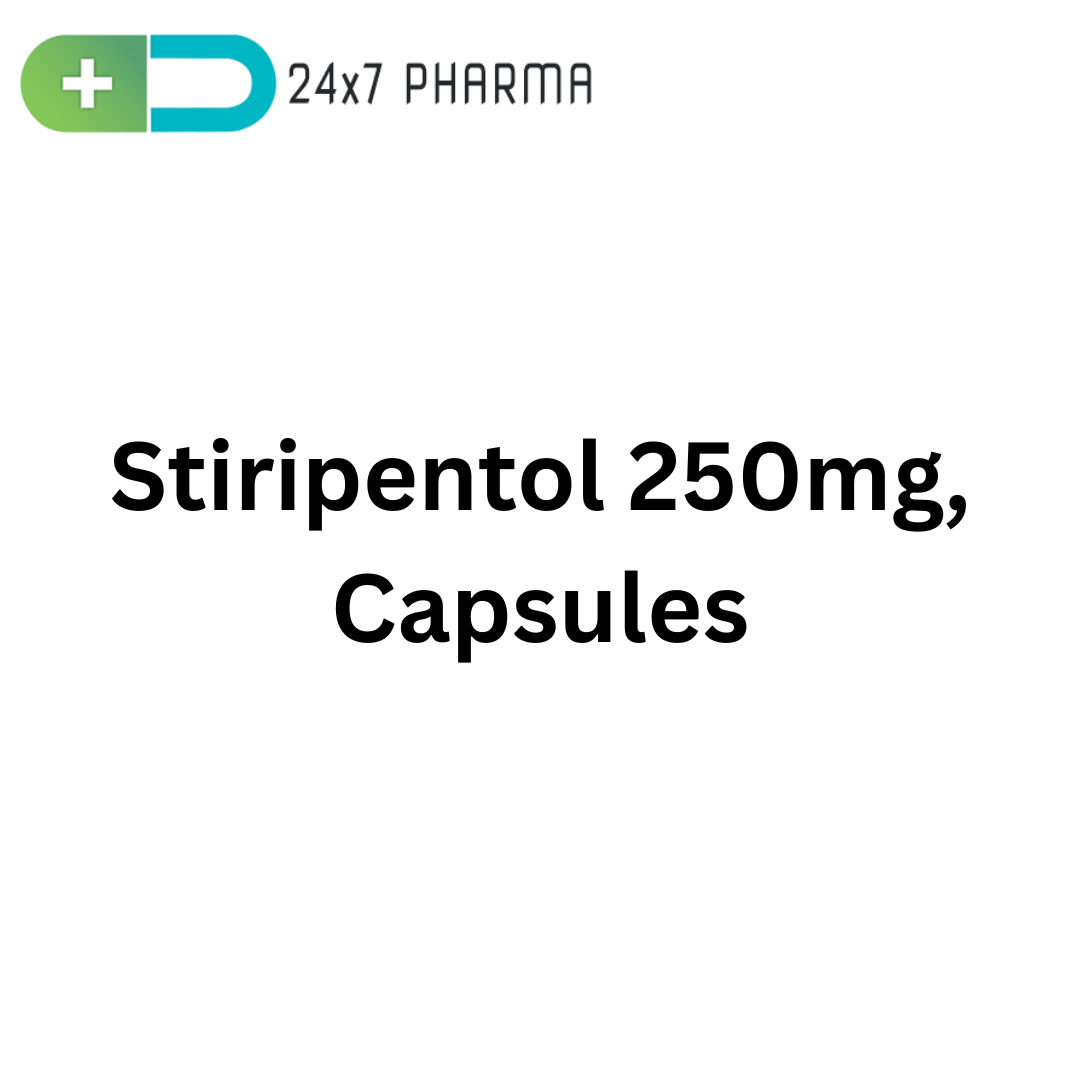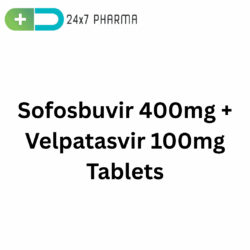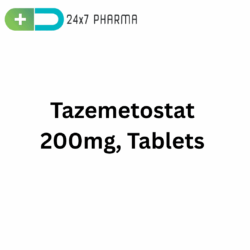LuciStir 250mg, Stiripentol Capsules
Stiripentol, a drug mostly used as an adjuvant therapy in the treatment of epilepsy, particularly Dravet syndrome in children, is present in LuciStir 250mg. It is an anticonvulsant that enhances the efficacy of other antiepileptic drugs and reduces the frequency of seizures. Developed to address resistant seizures, Stiripentol has carved its place in pediatric neurology due to its unique action and synergy with other medications like clobazam and valproate.
What is LuciStir 250mg?
LuciStir 250mg is an oral formulation containing Stiripentol, a broad-spectrum antiepileptic drug. When treating Dravet syndrome or severe myoclonic epilepsy in infancy (SMEI), it is usually administered in conjunction with other antiepileptic medications rather than as a stand-alone treatment. Beginning in infancy, this disease is a severe and uncommon form of epilepsy that frequently defies conventional therapy.
How Does It Work? / Mechanism of Action
There are multiple ways in which stiripentol produces its antiepileptic effects:
- GABAergic enhancement: It potentiates the effect of GABA (gamma-aminobutyric acid), the primary inhibitory neurotransmitter in the brain, by modulating the GABA-A receptor complex, similar to benzodiazepines.
- Enzyme inhibition: Stiripentol inhibits liver enzymes like CYP1A2, CYP2C19, and CYP3A4, slowing down the metabolism of other antiepileptic drugs like clobazam and valproate, thereby increasing their plasma concentrations and effects.
- Direct anticonvulsant effect: It has intrinsic anticonvulsant properties, although less potent than when used in combination.
- Together, these effects help reduce seizure frequency and severity, particularly in cases where seizures are otherwise difficult to control.
How to Use / Indications
Indications:
LuciStir 250mg is specifically indicated for use as adjunctive therapy in the treatment of Dravet syndrome (SMEI) in children who are already receiving valproate and clobazam, and whose seizures are not adequately controlled.
It is not approved for all types of epilepsy or for monotherapy, and its use should be initiated by a specialist in epilepsy treatment.
How to Take / Dosage
Standard Pediatric Dosage (for Dravet Syndrome):
-
- Initial Dose: 50 mg/kg/day divided into 2 or 3 doses with meals.
- Maintenance Dose: May be increased up to 100 mg/kg/day based on clinical response and tolerability.
- Administration: Administer orally with meals to reduce gastrointestinal side effects and enhance absorption.
- Tablets should be swallowed whole; do not crush or chew.
- Dose adjustments may be necessary when combined with other drugs due to enzyme inhibition.
Other Dosage Forms / Considerations
- LuciStir may also be available in 500mg tablets and oral suspension formulations in some regions.
- The choice of formulation depends on patient age, weight, and ability to swallow tablets.
- In adults or adolescents, dose adjustments must be guided carefully by a neurologist.
Side Effects
Like all medications, LuciStir can cause side effects, though not everyone will experience them. Common and serious side effects include:
Common:
- Drowsiness
- Loss of appetite
- Nausea, vomiting
- Weight loss
- Insomnia
- Ataxia (loss of coordination)
Serious (seek medical attention):
- Neutropenia (low white blood cells)
- Thrombocytopenia (low platelets)
- Liver enzyme elevation
- Hypersensitivity or allergic reactions
- Routine blood monitoring (CBC, liver function) is recommended during therapy to detect early complications.
Storage
- Store LuciStir 250mg tablets in a cool, dry place below 25°C.
- Keep away from direct sunlight and moisture.
- Keep the medicine out of reach of children.
- Do not use the medicine after the expiry date mentioned on the packaging.
Benefits
- Effective seizure control: Especially in refractory cases of Dravet syndrome.
- Enhances other drugs: Stiripentol increases the effectiveness and dosage of valproate and clobazam.
- Improved quality of life: Fewer seizures often translate to better developmental and cognitive outcomes in children.
- Multiple mechanisms: Its unique multi-modal action makes it valuable when other medications fail.
Prescription
- LuciStir 250mg is a prescription-only medication.
- It should be prescribed by a neurologist or pediatric specialist experienced in treating epilepsy.
- Regular follow-up is essential to monitor therapeutic response and adverse effects.
Drug Interactions
Stiripentol significantly affects the metabolism of many drugs due to its CYP450 inhibition.
Major interactions:
Clobazam: Increases clobazam and norclobazam levels, enhancing sedation and anticonvulsant effects.
Valproate: May increase valproate levels; monitor liver enzymes.
- Phenytoin, Carbamazepine, Phenobarbital: Metabolism may be affected; avoid or monitor closely.
- Warfarin, Omeprazole, Theophylline: Increased risk of toxicity due to slowed metabolism.
- Avoid alcohol and other CNS depressants due to the risk of excessive sedation.
FAQs
Can it be used alone for seizures?
No, it is only approved as adjunctive therapy.
Is it safe in adults?
While used mainly in children, adult use may be considere under specialist supervision.
Can it be stopped suddenly?
No, stopping suddenly can trigger seizures. Dose must be tapere under medical guidance.
What foods to avoid?
No specific food restrictions, but take the tablet with food for better tolerance.
Conclusion
LuciStir 250mg (Stiripentol) is a valuable adjunct therapy for Dravet syndrome, offering a unique mechanism of action and potentiation of other antiepileptics like clobazam and valproate. Its use has significantly improved seizure management in children who are unresponsive to standard treatments. However, due to its complex pharmacokinetics and interaction profile, it must be use with careful monitoring under specialist supervision. With correct use, LuciStir can lead to better seizure control and quality of life in pediatric epilepsy patients.



